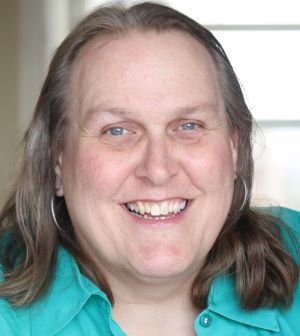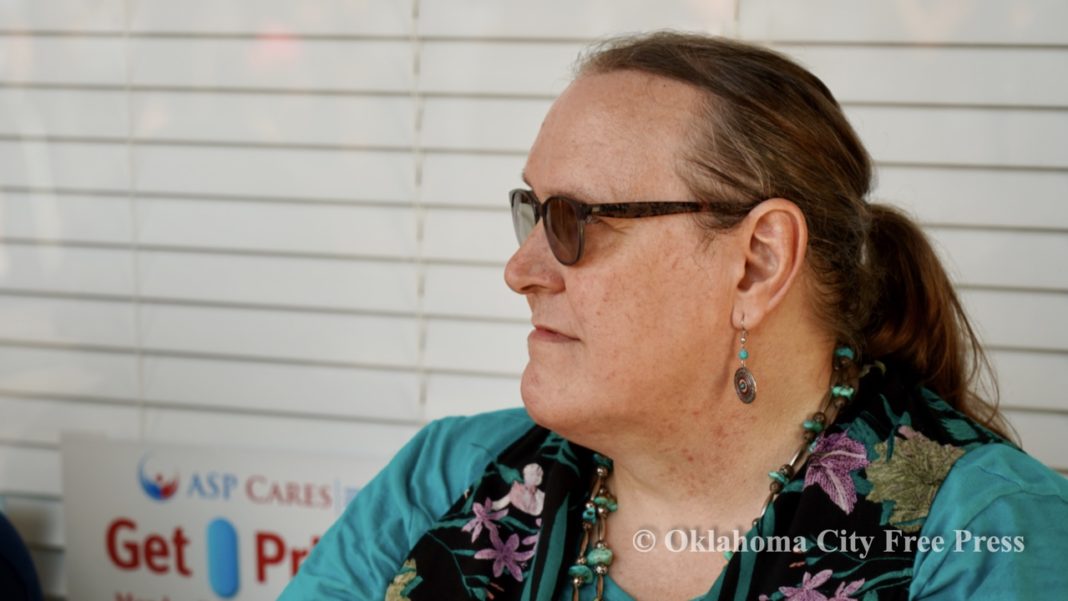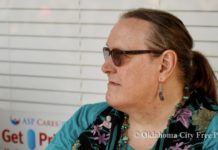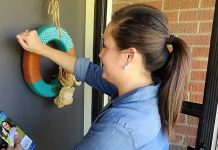Last Updated on January 5, 2024, 12:54 AM | Published: June 3, 2022
Paula Sophia Schonauer, LCSW, continues a serial memoir. If you haven’t read the earlier parts of this series, follow the links at the bottom of this page.
It was getting dark, and being alone made me want company. I wondered what teenagers did when alone at home. Did they call their grandmothers? Invite friends for a sleepover? Throw a party? I thought about calling my aunt, but she would insist on coming over, taking me somewhere, her house, perhaps foster care. I imagined life in a group home or a reform school. Certainly, I had run away and had been gone for two days, but I was more like an accidental runaway, leaving home to find my father and brother, though not returning.
I felt the old dread, that haunted feeling I experienced the first few months after moving to the house on 8th Street. I could almost feel the shadows stretching around corners, watching me, reaching for me. My ears perked to listen for those familiar creaks and bumps heard only at night in old houses, the forsaken sighs, distant yet near, resonating with the wind, and sometimes, without it.
The telephone in the kitchen still worked, and for some reason, it felt like a miracle, a connection to the outside world. As I dialed some numbers to call a friend, thoughts of haunting my own house invaded my mind. Might I be here for eternity, alone, able to see the environs outside the house but unable to leave, unable to interact with other people?
After the phone line connected, I listened to the ring: once, twice, three times, thinking of a song from Electric Light Orchestra, “Telephone Line,” the lyrics portraying a lovelorn soul listening to the phone ring forevermore. After ten rings, I hung up, wanting to avoid the fate of the person in the song. I dialed another number and waited, counting the rings, prepared to abandon the call, once again, when it got to ring ten. It occurred to me I might dial numbers over and again, finally deciding to let the ring go on for eternity so I could at least hope for an answer. Hope might not be much, but it was at least something when you have nothing else.
Someone finally answered the phone, a woman’s voice, “Hello?’
During my ruminations, I had forgotten who I called, so I waited, holding my breath as I tried to remember: Bill? Rob? Leah? I threw the dice, “Is Rob there?”

“Wrong number,” came the curt reply. She hung up.
About the time I had resigned myself to loneliness, I heard a knock. Not trusting my mind, I waited. Again, another knock, three distinct raps in a steady cadence, not like the random night noises that plagued my imagination. I wandered to the front of the house, careful not to step too hard to give away my presence. Might it be the police?
When I got to the foyer, I saw a masculine silhouette framed in the doorway, someone about as tall as me. When I approached, the person knocked again.
“Who is it?”
“Is that you, Paul?”
“Bill?”
“Yeah, it’s me.”
I almost swooned, so grateful to have somebody break my spell of isolation.
When Bill came into the house, he looked around, listened to the silence. “You alone?’
“Yes.”
“Cool… got anything to drink?”
“Some Pepsi?”
Bill frowned. He had a bushy head of hair that emulated John Travolta’s hairstyle in “Saturday Night Fever,” what he called a Disco Pompadour even though we had entered the era of the Disco backlash when people were beginning to wear “Disco Sucks’ t-shirts. He even walked like John Travolta in that opening scene when he’s carrying the paint can.
“Pepsi sucks. I mean, do you have anything harder?”
I shrugged. I could not believe Bill was someone who would hang out with me. I met him after school one day after his little brother had flipped me off and called me a queer because I was wearing corduroys instead of jeans. I had chased the kid a couple of blocks acting like I wanted to kick his ass when Bill and his brother Bobby showed up. They claimed that the kid was their little brother and that they did not appreciate me harassing him.
While Bill and Bobby confronted me, the kid stood behind them making faces and flipping me off some more. I told them I did not want to hurt their little brother, but Bill was not satisfied. He took a fighting stance, raised his hands like a boxer, and called me a “faggot.”
“Not a fair fight,” I protested. “Two on one?”
Bobby backed away, indicating Bill could manage it. Bill flicked his fist toward my head, and I instinctively stepped aside. Bill closed the distance and went for a body shot. That’s when I slapped him hard against the head, using an open hand like Donut had taught me to reduce the risk of injuring my hand. Bill stumbled sideways, and I slugged him with a left hook. He got mad and ran toward me, intending to take me to the ground, but I accidentally kneed him in the abdomen, right in the solar plexus, knocking the wind out of him. He fell to the ground and curled into a fetal position. Bobby stayed back, amazed, I guess, that a kid wearing corduroys could kick Bill’s ass.
I walked home the victor that day, feeling a surge of adrenaline mixed with satisfaction for having dealt with a potential bully in such a decisive manner. However, the next day after school, Bill and Bobby and a couple of other guys were waiting for me at 6th and Portage Trail, standing at the corner, menacing in their drabby jean jackets, and faded jeans.
“What’s with the corduroys, dude?” Bill said. He and his buddies laughed at me.
“I go to Redeemer,” I said. “They don’t let us wear jeans or anything denim.”
“That’s cool,” Bill said, surprising me. I thought this was going to be a showdown, but it was apparently something else, the beginning of a friendship.
Bill introduced me to the two other guys, Rob and Dave, telling them, “This is the kid who kicked my ass yesterday.”
A curious thing about boys, they can fight and still be friends, that is, unless they become rivals. Bill patted me on the back and motioned me toward his buddies. “We’re the Champions.”
The Champions were street gang wannabes fashioned after the gangs portrayed in the movie, “Warriors” that had come out earlier that year. Suddenly, little groups of junior high kids were walking down the street acting like gangsters. The Lamp Avenue Champions were named after the song by Queen, “We Are the Champions” which often played directly after the popular stomp, “We Will Rock You” every time we heard it on radio airplay. Lamp Avenue was a path that wound beneath the Portage Trail bridge that spanned the Cuyahoga River, their turf. Their rivals were a bunch calling themselves the Liberty Street Cougars, the name of a local youth baseball team. They claimed Trails End Park near the Portage Towers, an apartment complex just east of the river.
Bill wanted me to join the Champions, and so I did, my first flight into hypermasculinity. He told me the Cougars wanted to take over Lamp Avenue, which was a hangout for local potheads close to an old hydroelectric generator building. Someone had graffitied an old-fashioned Lamp Post beneath the bridge, someone else the words “Lamp Avenue.” We were supposed to rumble sometime later that summer, but we were suburban kids, many of us having to wait until everyone else had finished baseball seasons, vacations, or summer camps.
Such as it was, that’s what brought Bill to my house that summer evening: boredom. All the other guys were gone doing summer things, the rumble, an ominous yet ethereal future event that would happen when the timing was right.
“My dad has some rum, I think,” I said, answering Bill’s question about having something “hard” to drink.
“Awesome!”
Dad was not a big drinker. He never drank beer, and he rarely drank liquor, except when he had a bad cold. He used rum to make hot toddies. I found a bottle of Bacardi in a cabinet next to the kitchen sink. It had already been opened, but it was mostly full. Bill looked in the refrigerator and got a bottle or Pepsi.
“My uncle drinks rum and Cokes. Rum and Pepsi is kind of the same thing.”
He opened the Pepsi, a 16-ounce bottle marked “Deposit 5 Cents.” I filled two large cups halfway up with Pepsi and poured rum into the cups, going to three-fourths full. We grabbed our cups, raised them in the gesture of a toast, and took big drinks. The concoction burned my throat and all the way down my esophagus, causing me to gag and sputter, Bill too.
“Damn, that’s awful,” I said.
After gasping for breath for a moment, Bill laughed. “Come on, man. It’ll put hair on your chest.”
I laughed, thinking how absurd to think that drinking liquor would make hair grow on your chest. Then, I thought, I do not want to grow hair on my chest.
Bill raised his glass again. “Come on, chug it!”
We raised the glasses to our lips and did our best to drink the contents down in one, big gulp, sputtering and coughing the whole time. It’s amazing that we managed to swallow enough rum to catch a buzz. Feeling suddenly warm and sweating, I staggered out of the kitchen, Bill following. We went into the living room, turned on the television and tuned in the Star Channel just in time to catch “FM” a movie about a Rock Station protesting the airing of Army recruitment ads, but we did not care about the plot. We wanted to see the Asian beauty portrayed in the film, the one with the reputed “white nipples.”
I remember laughing and laughing, feeling light and anxiety free for the first time in a long time, and I thought in that magic buzz of a moment, “Maybe, I’ve found an answer.”
Previous episodes
- Manhood, from the inside out — Memoir and Mythology
- Part 2 — Cubby Hole
- Part 3 — Magic Carpet Cocoons
- Part 4 — Snips and Snails and Puppy-Dogs’ Tails
- Part 5 — Mirror
- Part 6 – Deep Water
- Part 7 – Limbo
- Part 8 – Dissociation
- Part 9 – Shame
- Part 10 – Judgement Day
- Part 11 – Inferno
- Part 12 – Haunted
- Part 13 – Did I say that?
- Part 14 – The end times
- Part 15 – Alone again (naturally)
- Part 16 – Welcome to Grey Town
- Part 17 — Stigma
- Part 18 — Turning the other cheek
- Part 19 — Malingering
- Part 20 — Rorschach
- Part 21 – Soft hands
- Part 22 — How real men talk
- Part 23 — Crash landing
- Part 24 — To make a fist
- Part 25 — To hurt another
- Part 26 — Showdown
- Part 27 — Savage aggression
- Part 28 – Heroic
- Part 29 — Fear of death
- Part 30 — To be an android
- Part 31 — Too old for toys
- Part 32 — Her eyes
- Part 33 — A bedtime story
- Part 34 –- Sacrifices
- Part 35 — don we now our gay apparel
- Part 36 — Aspirations
- Part 37 — Doing the math
- Part 38 — Baseball rebels
- Part 39 — Climbing Mount Maslow
- Part 40 — Dear mom
- Part 41 – O Holy Night
- Part 42 — Chrysalis
- Part 43 — The Pain of Loneliness
- Part 44 — A Picture and 900 Words
- Part 45 — A night visitor
- Part 46 — Unnatural
- Part 47 — Oblivion
- Part 48 — An unexpected affirmation
- Part 49.1 – The day I grew up
- Part 49.2 — The day I grew up
- Part 50 — An invitation from a stranger
- Part 51 — An awakening
- Part 52 — Bodies
- Part 53 — First glimpse
- Part 54 — Where the darkness lives
- Part 55 – The purge
Guest Columnist Paula Sophia is a licensed clinical social worker in Oklahoma City and a former Oklahoma City Police Officer.







